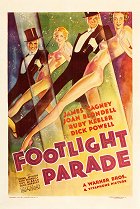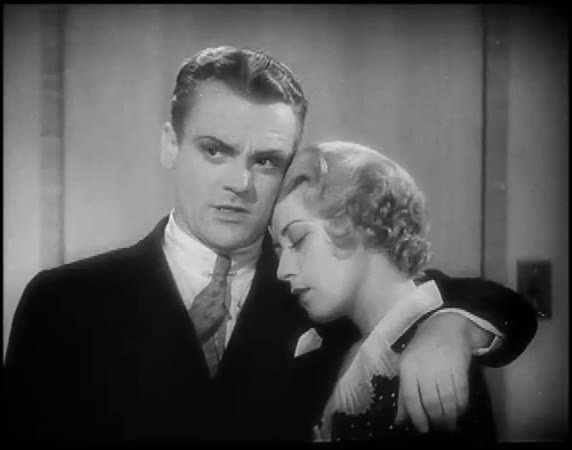Directed by:
Lloyd BaconCinematography:
George BarnesCast:
James Cagney, Joan Blondell, Ruby Keeler, Dick Powell, Frank McHugh, Guy Kibbee, Ruth Donnelly, Hugh Herbert, Claire Dodd, Gordon Westcott, Arthur Hohl (more)Plots(1)
Chester Kent, a successful producer of musical comedies, finds himself out of work with the advent of talking pictures. His wife leaves him when he breaks the news to her, but he's not down for long. He convinces his two partners, Sy Gould and Frazer, to join him in producing prologues, live performances to be presented before the movies are shown, and soon he has more business than he can handle. Everything does not function smoothly, however. As soon as Chester thinks up ideas, his competitor, Gladstone, beats him to the punch. Added to this is the fact that his partners seem to be cheating him out of his share of the profits. Throughout all the chaos, he depends on his loyal secretary, Nan Prescott, who is madly in love with him, even though he doesn't realize it. Instead, to Nan's disgust, he has fallen for Vivian Rich, a gold digging actress. Then theater chain owner Appolinaris agrees that if Chester can come up with three new shows in three days, he'll sign all his theaters with him. Frantically, Chester sets to work, locking everyone in the studio to prevent leaks. With Nan's help, he pays off his ex-wife, collects his share of the profits, discovers Vivian's true nature, finds the leak and stages his three prologues. The first two numbers are a big success. Then at the last minute, Chester has to go on as the lead in the third because the star is drunk. He performs splendidly, gets the contract and after his last bow, he proposes to Nan. (official distributor synopsis)
(more)Reviews (2)
When he didn’t have a tommy gun at hand, James Cagney used his mouth to fire off words at a machine-gun rate. As a producer with an explosive disposition and the smile of an innocent, he fires in all directions during the first hour without a break. Because his battlefield is a film made before the introduction of the Production Code and his partner is the in no way bashful Joan Blondell (see her promotional photos from the given period), the sensual innuendos in the scenes with screwball editing are like bacteria in a petri dish. Though it’s categorised somewhere among musicals and was clearly inspired by stage musicals – including the transitions between scenes, which are reminiscent of a curtain opening, including Cagney addressing his stable as if he’s speaking to the audience – Footlight Parade offers up the real performance during the last forty minutes, specifically at the moment when the waiting for the transformation of the working relationship into a personal relationship burns itself out in the narrative. (But everything happens in such a hurry that there is no time to think about it anyway.) Anyone expecting spectacular musical numbers cannot be disappointed by the Berkeley-esque footwork. The lyrics of the songs are not nearly as important as the choreography, eliciting well-deserved superlatives from our speechless mouths even during a barroom brawl. Though it breaks down into two films, the second of which is three separate numbers, this all-talkie show-business comedy is consistently entertaining and makes what was at the time of its creation a valuable, albeit ultimately false, statement: sound films are not a threat to your business. 75%
()
The movie "42nd Street" actually caught my attention, but compared to "Footlight Parade," it's more like a demo. It's like a preparation for this longer and ultimately more interesting piece. Same director, just more singing scenes, continues with great visuals and excellent voice acting, but there's even better humor, a better story, and of course, excellent music added to it. This is truly a great start to the golden age of musicals.
()

